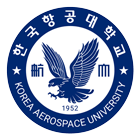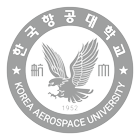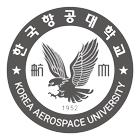- Degree & Programs
- Undergraduate
- College of AI Convergence
Degree & ProgramsDegree & Programs
Undergraduate College of AI Convergence
-

Department of Software and Computer Engineering
- Location :
- Rm No 416 , the Electronic Engineering Building
- Telephone :
- +82 2 300 0180
- E-mail :
- yakim@kau.ac.kr
Introduction
Undergraduates of the Department of Software and Computer Engineering study computer science, including information processing, artificial intelligence, data science, and security related to software. Selected as a Software-focused University in 2021, we strive to develop, nurture, and guide professionals with software skills by strengthening major courses, promoting industry-academia cooperation, and training talents specializing in the AI Convergent Project. The demand for advanced software technologies that drive the 4th Industrial Revolution will increase dramatically across all industries. Therefore, the Department of Software and Computer Engineering, which trains software professionals, can be the most promising choice.
Study
The Department of Software and Computer Engineering is divided into the fields of Advanced Software, AI, and Data to train experts in each field. The Advanced Software curriculum is designed to train developers in web/application and system software development, security, etc. The AI curriculum specializes in the field of artificial intelligence, including learning and inferring models and generating new data. The Data curriculum focuses on data-related subjects such as big data and databases.
Future
Graduates of the Department of Software and Computer Engineering become software engineers for software design, development, management, and research. They are employed not only by software companies such as Kakao, Naver, NHN, and Line, but also by renowned companies and public organizations in all industries such as Samsung Electronics, Hyundai Motor Company/Kia, Coupang, Korean Air, KT, Hanwha, Industrial Bank of Korea, Korea Electric Power Corporation, and Korea Financial Telecommunications & Clearings Institute. The graduates working at the aforementioned companies show high satisfaction in their jobs and the given options for employment.
-

Department of Smart Drone Engineering
- Location :
- Rm No 428 , the Mechanical Engineering Building
- Telephone :
- +82 2 300 0255
- E-mail :
- ny950307@kau.ac.kr
Introduction
The Department of Smart Drone Engineering was established in 2021 with the goal of developing creative talents who will lead the drone industry, one of the new growth engines, by integrating electronics, electricity, AI/SW, and ICT, with a focus on the field of aviation machinery. The aviation and drone fields, which are major subjects of the department, are included in the government's 8 Core Leading Projects, 13 Innovative Growth Engines, and 12 New and Emerging Industries. The fields' applications continue to expand, with urban air mobility (UAM) using drones being included as a major leading field in the 3rd Master Plans for Aviation Policy (2020 - 2024) being established by the Ministry of Land, Infrastructure, and Transport. The field of smart drone engineering requires creativity to learn and apply principles and technologies from various disciplines.
Study
The department offers a balanced curriculum that combines the fields of aeromechanics, electronics and software. To study aeromechanics, students learn the basic theories of statics in their freshman year and dynamics, material dynamics, thermodynamics, and fluid mechanics in their sophomore year. In their junior and senior years, students study in-depth courses such as automatic control, aircraft control, aircraft performance and conceptual design, and autonomous flight planning. To study electronics, students take the introduction and practice of electronics in the first semester of their sophomore year, sensor engineering in the second semester of their junior year, and signal, systems, digital communication, and robotics in their senior year. To study software, students take the introduction to programming (Python) course and the basic grammar of C/C++ programming course in their freshman year, and learn about the basic methodology of software design in the data structure/algorithm course in the second semester of their sophomore year. Building on this foundation, students systematically study AI/SW in depth in their sophomore and junior years through courses such as AI programming, machine learning, and computer vision. Students also learn about software development in general through software engineering courses.
Future
A large number of graduates become system design/operation/control/SW specialized engineers and aviation specialized data scientists related to the drone and UAM industry, in aviation/UAM/automobile related companies, government agencies, and government-funded research institutes.
-

Department of Autonomous Vehicle Engineering
- Location :
- Rm No 428 , the Mechanical Engineering Building
- Telephone :
- +82 2 300 0258
- E-mail :
- hschang@kau.ac.kr
Introduction
The Department of Autonomous Vehicle Engineering was established in 2022 with the goal of developing professionals who will lead the AI and autonomous driving industries, which are expected to be new growth engines in the era of the 4th Industrial Revolution. As a participating department in the software-focused university project supported by the Ministry of Science and ICT in 2021, the department aims to train AI experts with technical knowledge and research skills needed by industrial companies through internships and project-based courses. Since the core of autonomous driving technology is the convergence of various disciplines, we are developing convergence experts through cooperation with related industries, while connecting with the Department of Software and Computer Engineering and Department of Smart Drone Engineering of the College of AI Convergence.
Study
Students study the engineering principles of AI/SW, electronics, and mechanics for the cognition, judgment, and control processes of autonomous driving systems, as well as embedded systems that incorporate these technologies and telecommunications engineering for data exchange. In addition, we aim to develop students into all-round system engineers through a design project-based curriculum. To this end, our curriculum is organized so that students experience the entire product development cycle, including planning, design, hardware manufacturing, software implementation, and testing. The curriculum consists of AI/SW fundamentals, convergence, advanced mobility, and practice. This allows students to acquire the comprehensive knowledge and skills needed to develop autonomous driving systems, and is also designed to enhance practical skills. In their freshman and sophomore years, students take basic courses in AI/SW fundamentals and AI/SW convergence. Starting from their sophomore year, they begin to take basic courses in the advanced curricula through Advanced Electronics/Communications Track and Advanced Control/Robotics Track. Such tracks include basic courses, such as underlying dynamics, introduction to electric and electronic, and hands-on experience. In their junior year, students take advanced courses in the previous subjects. In their senior year, they take advanced courses in AI autonomous driving, as well as design and practice courses. Instead of design courses, students can take electives, work on collaborative projects with the university or companies that are collaborating with the department, and participate in club activities and various on-campus and off-campus competitions to gain more hands-on experience.
Future
Graduates can find positions in domestic and foreign automobile, robot, and drone manufacturers, mobility service companies, auto component design and manufacturing companies, national research institutes, and artificial intelligence companies.
